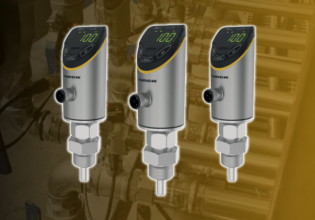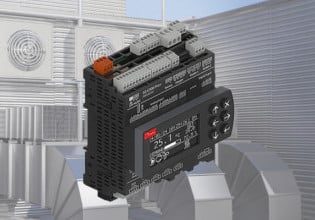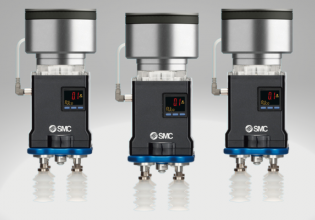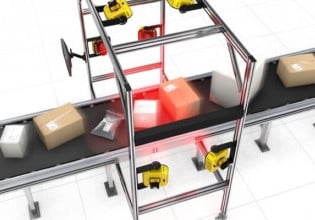C
Curt Wuollet
Hi Larry
> From: ScienceOfficer
> To: [email protected]
> Subject: Re: PLCS: When will PLCs catch up...!
>
> Curt---
>
> I'd love to see that Linux CD fix the failures I've seen in monitors, power supplies, pointing devices, hard disks, memory sticks, video cards, IDE interfaces, etc., that are in PCs and NOT in PLCs, and that are the reasons why PC reliability cannot approach PLC reliability.
Have you seen my writings on selecting reliable PC components? PC quality is a very manageable quantity seldom achieved by buying packaged systems. And easy to achieve by watching the boards you're interested in for a while before selecting one. That said, I've had very good luck with machines cast off as being unstable or too slow under Windows or even just plain dead. Something must account for the difference, and I've had customers remark that they have far fewer failures of any type running Linux. And I had nothing to do with building and selling those PCs. I would be most curious to see the figures from people who use massive amounts of both, like ISPs. This machine is running on two hard drives that were given to me as unusable. They were scribbled on and needed TLC but were certainly no dead. I'm not sure Linux could fix all those problems, but I've got a strong feeling that stability and lower resource use can prevent many of them. And that software trips to lalaland can be very hard on hardware.
> My own anecdotal evidence is that Windows systems properly set up run for years as well, until something breaks. Right behind me here is a Win95 PC that did nothing but run SETI@HOME units for three years nonstop, because I had nothing else for it to do. I replaced its hard disk three years ago; last month the power supply went. Meanwhile, PLCs that I installed during my integrator days in the eighties continue to work without a failure to this day.
Some will, some won't. Even MS readily admits that some versions were crashware, prompting a "crash" program on reliability that has shown very noticeable improvement. But your anecdotal evidence that PCs are unreliable is, no doubt, on MS platforms as well.
> I think a more important reason why PLCs eternally fail to meet the needs of many who complain is that they don't really want a PLC. The remaining PLC manufacturers are shipping more units than ever; declining revenues are in large part because the newer products are significantly cheaper than the older stuff. The user base for PLCs continues to expand. So does the user base for automation outside of the PLC world!
There is also the factor that an awful lot of PLC applications these days have a PC in the mix. And that's redundent as well as providing a vibrant contrast in bang/buck.
> I have several clients that use *nix solutions, Windows solutions, PLCs, embedded controllers, and even all of the above at once. Dogs and cats living together!!
Yes, and I see that as a very healthy situation. Much better than those who are absolutely monotheistic. Outside automation, I found 90% of selling Linux and other alternatives was simply getting to where folks could make a comparison. Inside automation, I suspect it would be more like 99%
> I seem to stay on good terms with my clients while admiring their choice of the correct solution set for the problem at hand. If it ain't a PLC, I can live with that, as long as it's the right choice.
I agree, but my customers tend to be biased and sometimes even want total absolution from the past. This isn't always the right approach
Regards
cww
> From: ScienceOfficer
> To: [email protected]
> Subject: Re: PLCS: When will PLCs catch up...!
>
> Curt---
>
> I'd love to see that Linux CD fix the failures I've seen in monitors, power supplies, pointing devices, hard disks, memory sticks, video cards, IDE interfaces, etc., that are in PCs and NOT in PLCs, and that are the reasons why PC reliability cannot approach PLC reliability.
Have you seen my writings on selecting reliable PC components? PC quality is a very manageable quantity seldom achieved by buying packaged systems. And easy to achieve by watching the boards you're interested in for a while before selecting one. That said, I've had very good luck with machines cast off as being unstable or too slow under Windows or even just plain dead. Something must account for the difference, and I've had customers remark that they have far fewer failures of any type running Linux. And I had nothing to do with building and selling those PCs. I would be most curious to see the figures from people who use massive amounts of both, like ISPs. This machine is running on two hard drives that were given to me as unusable. They were scribbled on and needed TLC but were certainly no dead. I'm not sure Linux could fix all those problems, but I've got a strong feeling that stability and lower resource use can prevent many of them. And that software trips to lalaland can be very hard on hardware.
> My own anecdotal evidence is that Windows systems properly set up run for years as well, until something breaks. Right behind me here is a Win95 PC that did nothing but run SETI@HOME units for three years nonstop, because I had nothing else for it to do. I replaced its hard disk three years ago; last month the power supply went. Meanwhile, PLCs that I installed during my integrator days in the eighties continue to work without a failure to this day.
Some will, some won't. Even MS readily admits that some versions were crashware, prompting a "crash" program on reliability that has shown very noticeable improvement. But your anecdotal evidence that PCs are unreliable is, no doubt, on MS platforms as well.
> I think a more important reason why PLCs eternally fail to meet the needs of many who complain is that they don't really want a PLC. The remaining PLC manufacturers are shipping more units than ever; declining revenues are in large part because the newer products are significantly cheaper than the older stuff. The user base for PLCs continues to expand. So does the user base for automation outside of the PLC world!
There is also the factor that an awful lot of PLC applications these days have a PC in the mix. And that's redundent as well as providing a vibrant contrast in bang/buck.
> I have several clients that use *nix solutions, Windows solutions, PLCs, embedded controllers, and even all of the above at once. Dogs and cats living together!!
Yes, and I see that as a very healthy situation. Much better than those who are absolutely monotheistic. Outside automation, I found 90% of selling Linux and other alternatives was simply getting to where folks could make a comparison. Inside automation, I suspect it would be more like 99%
> I seem to stay on good terms with my clients while admiring their choice of the correct solution set for the problem at hand. If it ain't a PLC, I can live with that, as long as it's the right choice.
I agree, but my customers tend to be biased and sometimes even want total absolution from the past. This isn't always the right approach
Regards
cww






